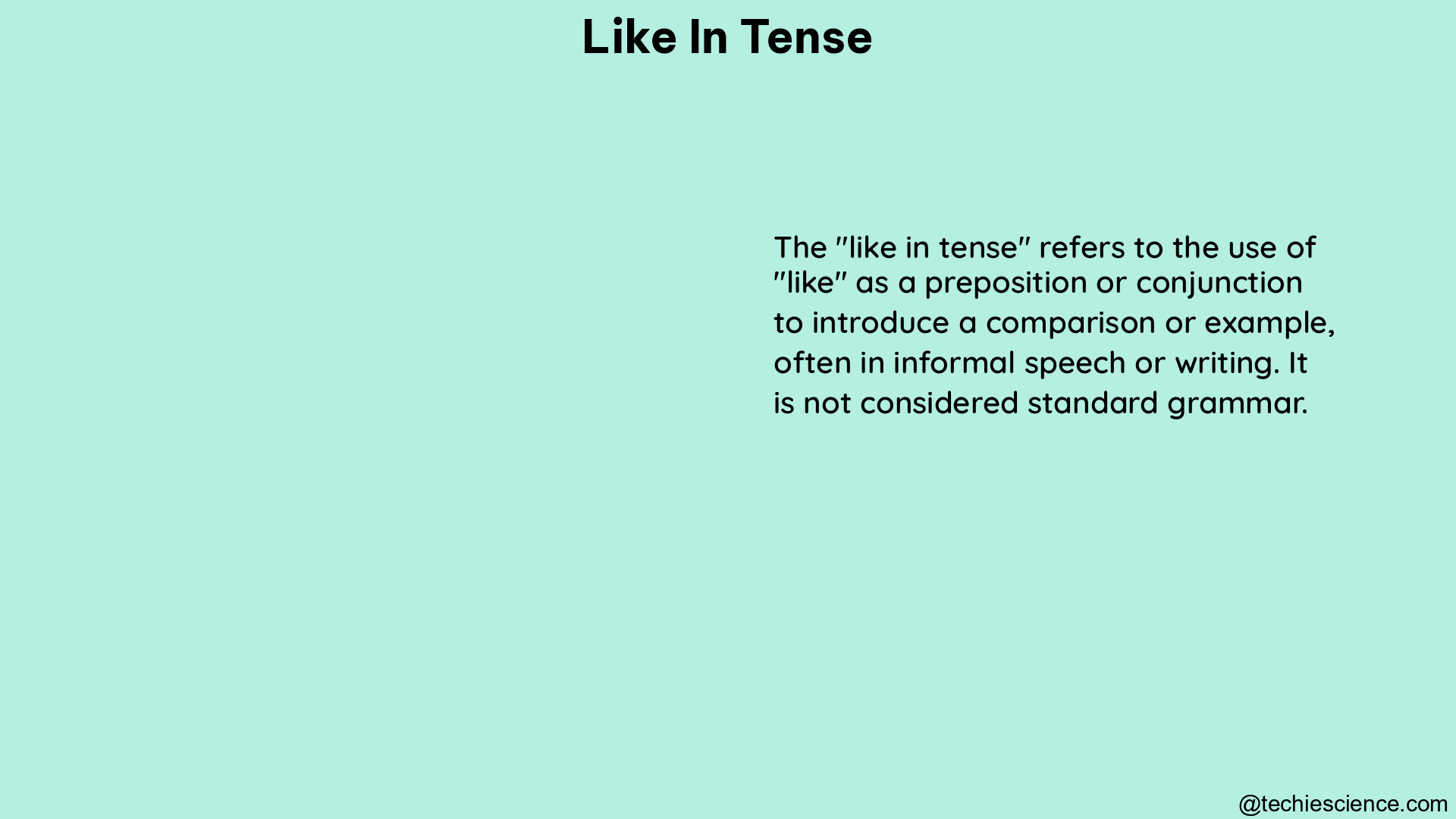The verb “like” is a fundamental part of the English language, and its conjugation is crucial for effective communication. This comprehensive guide will delve into the intricacies of using “like” in various tenses, providing you with a deep understanding of its grammatical nuances.
The Present Tense of “Like”
Base Form
The base form of the verb “like” is simply “like.”
Present Simple
The present simple tense of “like” follows a standard pattern:
– I like
– You like
– He/She/It likes
– We like
– They like
Present Continuous
The present continuous tense of “like” is formed by using the appropriate form of the auxiliary verb “be” and the present participle “liking”:
– I am liking
– You are liking
– He/She/It is liking
– We are liking
– They are liking
The Past Tense of “Like”

Past Simple
The past simple tense of “like” is formed by adding the suffix “-ed” to the base form:
– I liked
– You liked
– He/She/It liked
– We liked
– They liked
Past Continuous
The past continuous tense of “like” is formed by using the appropriate form of the auxiliary verb “be” and the present participle “liking”:
– I was liking
– You were liking
– He/She/It was liking
– We were liking
– They were liking
The Perfect Tenses of “Like”
Present Perfect
The present perfect tense of “like” is formed by using the present tense of the auxiliary verb “have” and the past participle “liked”:
– I have liked
– You have liked
– He/She/It has liked
– We have liked
– They have liked
Past Perfect
The past perfect tense of “like” is formed by using the past tense of the auxiliary verb “have” and the past participle “liked”:
– I had liked
– You had liked
– He/She/It had liked
– We had liked
– They had liked
Future Perfect
The future perfect tense of “like” is formed by using the future tense of the auxiliary verb “will” and the past participle “liked”:
– I will have liked
– You will have liked
– He/She/It will have liked
– We will have liked
– They will have liked
Common Mistakes with “Like”
-
Irregular Verb Patterns: Some learners mistakenly treat “like” as an irregular verb, leading to incorrect past forms. For example, using “liked” instead of “liked” in the past tense.
-
Confusion Over Tense: Using the base form “like” instead of the past form “liked” when referring to past events. For instance, saying “I like the movie we saw last weekend” instead of “I liked the movie we saw last weekend.”
-
Omitting Auxiliary Verbs: In perfect tenses or passive voice, the past participle “liked” should be used with the appropriate auxiliary verb. Failing to do so can result in grammatical errors, such as saying “I liked the book” instead of “I have liked the book.”
Examples of “Like” in Different Tenses
Present Simple
- She likes to read before bed.
- People usually like compliments.
- I like how peaceful it is here.
Past Simple
- They liked the movie they saw last weekend.
- We liked to go hiking every summer when we were younger.
- I liked that restaurant we went to on vacation.
Present Perfect
- This style has been liked by fans for decades.
- I have always liked classical music.
- Before she tried the new cuisine, she had only liked traditional dishes.
Reference:
- https://promova.com/past-tense-of/like
- https://www.wordhippo.com/what-is/the-past-tense-of/like.html
- https://lingokids.com/english-for-kids/verb-like

Hi…..I’m a graduate with a Bachelor’s degree in English Literature. I wish to do a Masters in the same field someday and continue my career in Academia.
Let’s connect through LinkedIn: